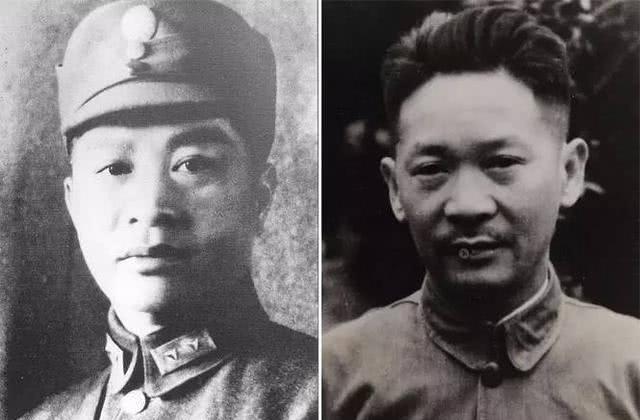The Northern Expedition War, that is, the vigorous Great Revolution, was a war in which the Kuomintang and the Communists united to wipe out the rule of the Beiyang warlords. And when it comes to this war, which unit can fight the best? Of course, it is the famous Iron Army.
Speaking of this, there may be a misunderstanding, because the Ye Ting Independent Regiment is really too capable of fighting, and many people mistakenly think of the Iron Army as the Ye Ting Independent Regiment. Not really. Iron Army, that's an army. It was the Fourth Army of the National Revolutionary Army, to which Ye Ting's Independent Regiment belonged.
This is the core unit of the Cantonese Army, and the commander is Li Jishen. The Fourth Army can be described as strong and strong, with famous generals. Almost all the famous cantonese generals in the later Cantonese army were included in this army. As the vanguard of the Northern Expedition, the Fourth Army slashed and conquered generals all the way and took many cities.

(Ye Ting, Zhang Fakui)
Of course, in the process, the Fourth Army itself is also growing, and when it grows, it will be expanded. At the end of 1926, more than a year after the establishment of the Fourth Army, the entire army was divided into three. How to divide it? The Fourth Army initially had three divisions under its command.
The original 10th Division was expanded into the 11th Army, and the commander was Chen Mingshu. Many people may not know Much about Chen Mingshu, but the two fierce generals under him are unknown to everyone, one is called Cai Tingkai, the other is called Jiang Guangnai, and the anti-Jiang two fighters.
Being Cai Tingkai's boss Jiang Guangnai, Chen Mingshu is certainly not a mortal. Chen Mingshu, also from Cantonese, suffered from eye disease when he was a child, and later we saw that he always wore a pair of glasses. But this did not prevent him from becoming a sharpshooter in the slightest.
Chen Mingshu was a member of the Old League and followed Sun Yat-sen Huang Xing in the revolution. He later became an anti-Chiang kai-shek fighter. After the military defeat, Chen Mingshu, Together with Li Jishen and others, founded the Kuomintang Revolutionary Committee and continued to oppose Chiang Kai-shek politically. After the founding of the People's Republic of China, Chen Mingshu joined the new China.
(Bronze statue of Chen Mingshu)
Chen Mingshu was a patriotic general. In 1965, the success of China's second nuclear test was a nationwide outrage, and Chen Mingshu was also very excited; at the symposium of the Kuomintang Revolutionary Committee, he had a heart attack due to excessive excitement and unfortunately passed away.
In addition to the Eleventh Army, the other was the Fourth Army. However, the military commander is no longer Li Jishen, but Zhang Fakui. In fact, from the beginning of the Northern Expedition, Li Jishen, as a military commander, did not go to the front line with the troops because he had too many part-time positions. Li Jishen was also the chief of the general staff of the National Revolutionary Army and the vice president of the Whampoa Military Academy, and of course he could not get away from him.
As the Fourth Army rushed to the front and fought more fiercely was the Twelfth Division, the division commander Zhang Fakui, Ye Ting Independent Regiment was subordinate to this division. Zhang Fakui is a native of Shaoguan, Guangdong, and he is a fierce general. When the Northern Expeditionary Army conquered Tingsi Bridge, everyone only saw the light of Ye Ting's independent regiment, and the leader hidden behind Ye Ting was Zhang Fakui.
After the expansion of the troops, Zhang Fakui, who had made outstanding achievements in battle, was naturally promoted to a higher rank and became the commander of the Fourth Army. Most of the generals of the Cantonese Army had a tradition of opposing Chiang Kai-shek, and Zhang Fakui was sometimes anti-Chiang Kai-shek and sometimes cooperated with Chiang Kai-shek throughout his life. When the Kuomintang collapsed, Zhang Fakui went to Hong Kong and was there for the rest of his life. He lived to be 85 years old.
Zhang Fakui occupied the number of the Fourth Army, so what about Li Jishen, the former commander of the Fourth Army? Li Jishen was more generous, and in order to avoid repeating his name, he renamed his Fourth Army the Eighth Route Army. What, eighth route army? That's right. Li Jishen's relationship with the Eighth Route Army had actually begun long ago.
As for Li Jishen's later achievements, it is needless to say that he was the vice chairman at the beginning of the founding of the People's Republic of China, and he reached the rank of vice-state, and among the generals of the Cantonese Army at that time, he was also the most accomplished. After all, he was the first commander of the Fourth Army.
Li Jishen died in Beijing in 1959 at the age of 74.